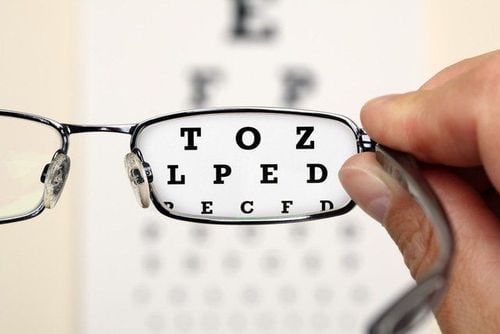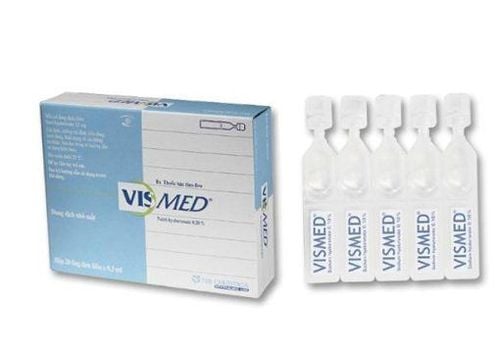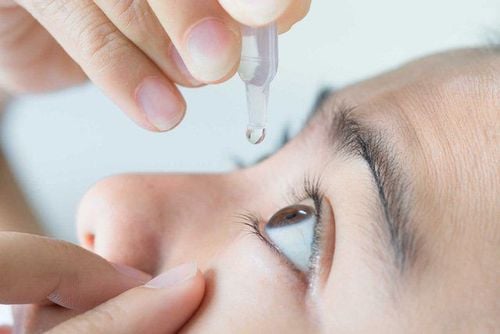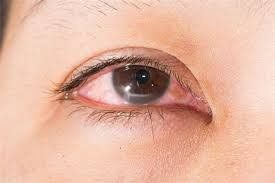This is an automatically translated article.
The article is professionally consulted by Master, Doctor Hoang Thanh Nga - Ophthalmologist - Department of Medical Examination and Internal Medicine - Vinmec Ha Long International General Hospital.
To ensure healthy eyes, the body needs a number of nutrients such as vitamins A and C, omega-3 fatty acids, antioxidants... natural nutrients.
1. Sunflower seeds and nuts
One ounce of sunflower seeds or almonds provides 50% of the recommended daily intake of vitamin E by the United States Department of Agriculture (USDA) for adults. Many studies have confirmed that vitamin E and other nutrients found in nuts slow down age-related macular degeneration, prevent its progression, and prevent cataracts. Hazelnuts, peanuts and peanut butter are also good sources of vitamin E.2. Dark green leafy vegetables
Kale, spinach and other green leafy vegetables are rich in vitamins C and E, and are also rich in the plant pigments lutein and zeaxanthin - two powerful assistants that help improve eyesight. Plant-based forms of vitamin A help reduce the risk of age-related eye diseases, including macular degeneration and cataracts. However, most people who follow the Western diet do not consume the required amount of green leafy vegetables.
3. Salmon
Your retina needs two types of omega-3 fatty acids, DHA and EPA, to function properly. You can find both of these nutrients in some fish, such as salmon, tuna, and other seafood. Omega-3s also contribute to protecting your eyes from macular degeneration and glaucoma. If the level of these fatty acids in the body is too low, it can lead to dry eyes.
4. Sweet potatoes, carrots
Yellow-orange fruits and vegetables - like sweet potatoes, carrots, cantaloupe, mangoes and apricots, are good for eyes because they contain lots of beta-carotene. This is a precursor of vitamin A that increases the eye's ability to adjust the darkness of night vision. One sweet potato will also provide more than 50% of the vitamin C you need in a day and a certain percentage of vitamin E.
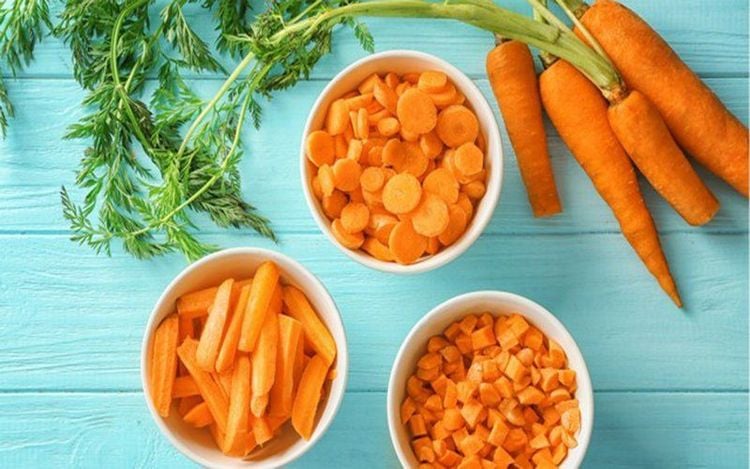
Cà rốt chứa nhiều vitamin A giúp tăng khả năng điều chỉnh của mắt khi nhìn trong tối
5. Lean meat and poultry
Zinc carries vitamin A from the liver to the retina, where the protective pigment melanin is made. Oysters are the richest source of zinc, but if you're not into shellfish in general, beef, pork, and chicken (both thigh and breast) are eye-catching foods. can be added to the menu.6. Legumes and Legumes
These are suitable options for vegetarians. Not only are they low in fat and high in fiber, but they also help sharpen your vision at night and slow down macular degeneration. Black beans contain a lot of zinc - a mineral that is essential for the health of the retina, which helps maintain the blood vessels that serve the eyeball. Black beans are also effective in preventing vision loss as well as cataracts. In addition, chickpeas, kidney beans (red beans) and lentils also contain quite a lot of zinc. A can of baked beans is good food for your eyes.
7. Eggs
Both egg yolks and egg whites are great choices, bringing many benefits to the body. The zinc in the egg white will help the body use the lutein and zeaxanthin found in the yolk well. The orange-yellow color of these compounds also prevents harmful blue light from damaging your retina. Eggs help increase the amount of protective pigment in the macula, the part that controls central vision.
8. Squash
Your body cannot make lutein and zeaxanthin on its own, but you can supplement it for yourself and your loved ones thanks to squash. Summer squash is packed with vitamin C and zinc, while winter-grown varieties will give you vitamins A and C, plus omega-3 fatty acids.
9. Broccoli and Brussels sprouts
These cruciferous vegetables have a combination of many beneficial nutrients, including: vitamin A (such as lutein, zeaxanthin and beta-carotene), vitamin C and vitamin E. These are all antioxidants, protecting protects the cells in the eye from free radicals - a harmful agent that breaks down healthy tissue. The retina of the eye is a particularly vulnerable part.
10. Red Bell Peppers
Vitamin C is very good for the blood vessels in the eye and science has also shown its ability to reduce the risk of cataracts. Vitamin C is found in many vegetables and fruits, including bok choy, cauliflower, papaya, and strawberries. In particular, red bell peppers are a good eye food, providing you with vitamin C. best. Heat breaks down vitamin C, so make it a priority to eat raw fruit if possible. Brightly colored bell peppers are also rich in vitamins A and E, which are very beneficial for the eyes.
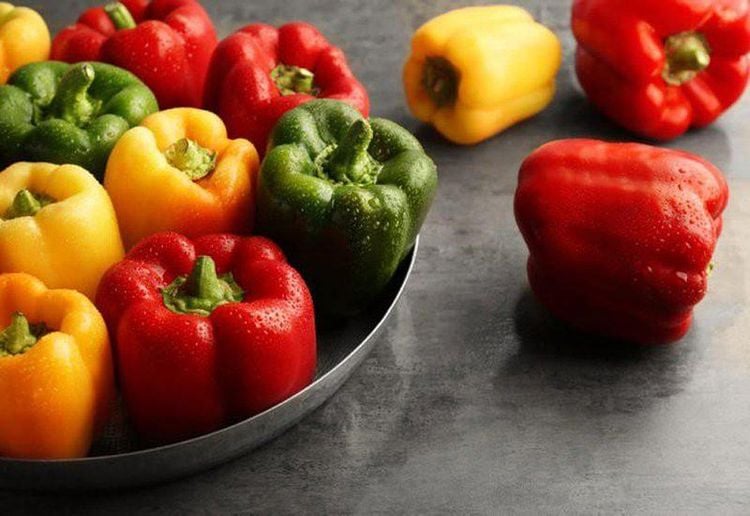
Vitamin C có trong ớt chuông có khả năng giảm nguy cơ mắc bệnh đục thủy tinh thể
11. Citrus Fruits
Everyone knows that citrus fruits are foods high in vitamin C, which is said to be a good anti-oxidant. The American Optometric Association (AOA) recommends vitamin C-rich fruits such as oranges, lemons, grapefruits, etc. to fight aging of the organ of vision.
12. Dark Chocolate
Flavonoid antioxidants found in dark chocolate increase blood flow to the retina. If your diet is combined with flavonoids, your vision will be markedly improved, even in dim light. In addition to dark chocolate, red wine is also a beverage rich in flavonoid compounds.
13. Water
Not surprisingly, water is also on the list of foods that are good for the eyes. Water is an essential liquid, always important for living organisms. Drinking enough water will prevent dehydration, and also reduce the risk of dry eyes.
Eye care is necessary to keep the whole body healthy. In addition to living habits, diet is also an important factor in keeping your eyes healthy for longer. Add to your daily menu the foods that are good for your eyes if you want to start taking care of your own and your family's eyesight.
If you are experiencing vision problems, go to a medical facility immediately to be examined and treated by doctors as soon as possible. Currently, Vinmec International General Hospital has vision-related service packages such as:
Refractive error screening package Cataract surgery consultation and examination package Ortho-K package For more detailed information For details, you can contact Vinmec Health System nationwide, or register online HERE.
Reference source: Webmd.com
SEE ALSO:
Tips to keep myopia from increasing Degree of abnormality in the eyes Good tips to help keep your eyes healthy when working on the computer Working a lot on the computer, Phone: Beware of screen vision syndrome




